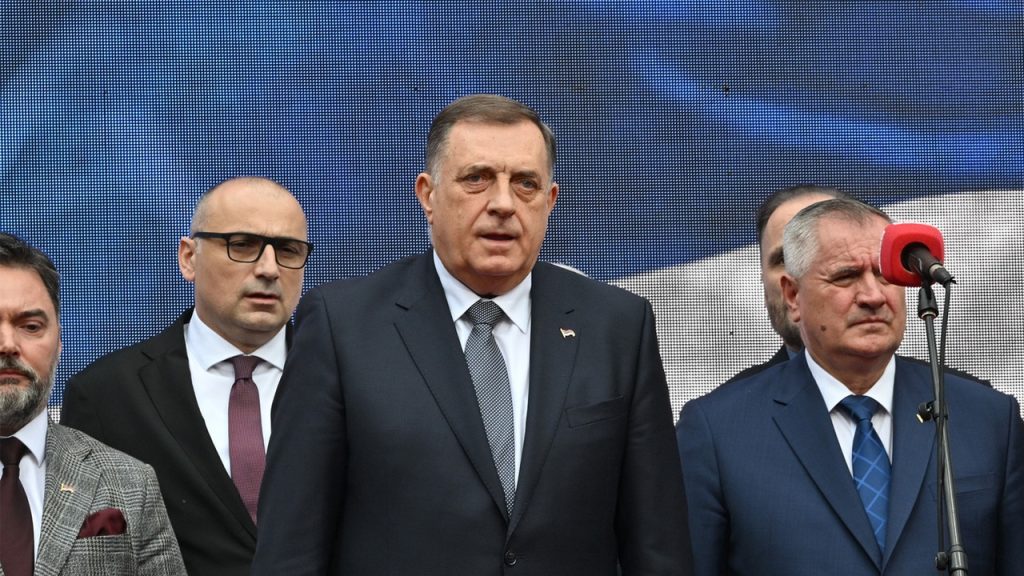Bosnia’s Serb Republic Prime Minister Steps Down to Form Broader Coalition

The head of government in Bosnia and Herzegovina’s Serb-majority entity, Republika Srpska (RS), announced his resignation on Monday as part of an effort by the ruling Serb party to establish a broader governing alliance with increased authority.
Radovan Viskovic, the outgoing prime minister, stated that although he is stepping down from his post, he will continue to serve in other senior roles and remain active within the Alliance of Independent Social Democrats (SNSD). He emphasised his ongoing commitment to the region’s long-term objective of independence.
“I will continue to hold important positions, …I am staying in the SNSD party (The Alliance of Independent Social Democrats) until we accomplish our ultimate goal and that is the state of Republika Srpska,”
Viskovic said, appearing at a press conference along with top party officials.
The political tensions surrounding Republika Srpska’s ambitions to break away from Bosnia have raised alarms internationally, marking one of the most serious threats to stability in the region since the violent breakup of Yugoslavia in the 1990s. RS and the Federation of Bosnia and Herzegovina, primarily home to Bosniaks and Croats, form the two entities of Bosnia under the terms of the Dayton Peace Agreement, which ended the 1992–1995 war that left around 100,000 dead and displaced roughly two million.
The reshuffle comes on the heels of legal action against RS President Milorad Dodik, who was sentenced to one year in prison and banned from political life for six years after being found guilty of ignoring rulings from the country’s top court and an international peace envoy. Earlier this month, the election commission removed him from office after an appeals court confirmed the verdict. Under Bosnian law, Dodik was permitted to convert his prison sentence into a monetary fine. He rejected the ruling, claiming it was unconstitutional.
Dodik has been a strong advocate for Republika Srpska’s secession and unification with Serbia over the past decade.
Dodik had invited the opposition to join his ruling coalition in a new government of national unity but the main opposition parties dismissed his calls.
“We want the RS government to gain a new democratic legitimacy, to be able to respond with its composition to all challenges that are before us,” Dodik said at the same news conference on Monday.
He did not disclose which parties would join a new government or who would lead it. Independent legal experts said that a prime minister proposed by a president who was stripped of office by the country’s top election authority would be illegal.
The Russian-backed Serb leader announced a referendum on whether he should leave office or not at the end of September.
Pending the referendum outcome, there could be a new referendum on the independence of the Serb Republic, said Dodik.
